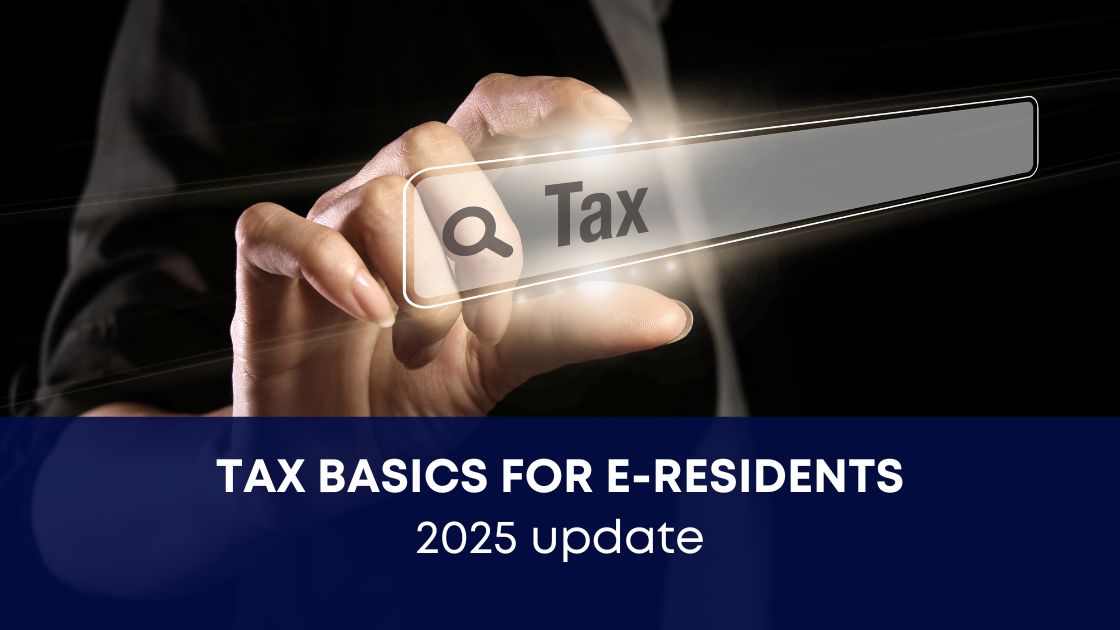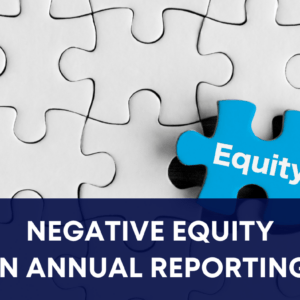Taxes and e-Residency in 2025

Personal tax residency
First of all, regardless of your e-Residency status, you must always pay personal tax in the country in which you are a tax resident. It is very important to understand the difference between e-Resident and residency – the first one is a digital status, the second one a physical residency with residential benefits and obligations. E-Residency does not necessarily mean you are an Estonian tax resident as an individual.
Important Note: Being an e-resident does not make you an Estonian tax resident.
You are considered a tax resident in Estonia if:
- You stay in Estonia for more than 183 days in a 12-month period.
- You have your permanent place of residence in Estonia.
Generally, residents are taxed on their worldwide income in their state of residence. This means that the country where you submit your annual personal income tax returns requires you to tax income you have earned from everywhere else in the world. Generally, there are also both domestic as well as international measures in place to avoid double taxation if this income has already been subject to tax in the country where you received it from.
For that reason, you should have proof of taxes paid or taxes that have been withheld in Estonia always available to be presented to your local tax authorities. Local tax treatment could be different for each type of income (dividend, salary, directors’ fee) and it could also be affected by what has been agreed in the tax treaty your country has concluded with Estonia.
If you are location-independent, you should understand the tax system of your home country and any country in which you work for an extended period of time. Everyone’s personal tax situation is unique, so we strongly recommend you seek professional tax advice – from your home country or from an international tax advisor, who’s also up to date with e-Residency. In case tax advisors in your home country are not yet familiar with the term of e-Residency, please provide them with this explanation from the Estonian Tax and Customs Board.
Corporate tax residency
Estonia has a simple rule which says that a company is a tax resident in Estonia if it is incorporated under Estonian laws. If you have registered your Estonian OÜ, then this means your company is an Estonian tax resident and subject to tax in Estonia.
However, some countries have different rules for deciding if a company is a tax resident. It is common that in addition to the place of incorporation, the place of effective management triggers permanent establishment. If you run your company from a country with such rules, then the company might end up having dual tax residence – this happens when two states believe that the company is tax resident in their jurisdiction and will want to tax the company’s profits.
When business activities of the company are carried out elsewhere or the company is managed from outside of Estonia, there is a chance that the received income will be taxed outside of Estonia. The specifics of when a permanent establishment is established outside of Estonia all depends on the tax regulations of your country.
Estonian Tax and Customs Board has a list of all Conventions for the avoidance of double taxation.
Estonian Tax System Updates for 2025
In Estonia, income tax is not assessed on the profit earned every year. Income tax is assessed only when profits are distributed (for example, when you pay out dividends). The corporate tax rate on distributed profits increased to 22% starting from January 2025, calculated as 22/78 from the taxable net payment. This is an increase from the previous rate of 20%. Regular dividends will continue to be taxed at the standard 22% rate, with no further reductions in the corporate tax rate for specific types of dividends.
In addition, a new tax on corporate profits will come into effect in 2026, but companies may need to start planning for it ahead of time. This will be a 2% tax on profits, applicable to all Estonian companies, including those established by e-residents. This tax will be calculated based on the company’s profit before tax for the previous fiscal year. This new tax will be paid quarterly in advance and will apply even to companies that have no profits in a given year, with the first payment due in 2026
Estonia’s taxation system still offers favorable features for investors — including a corporate income tax system that has worked well for nearly 20 years. However, the benefit of this system applies only to the profits attributable to Estonia.
Besides corporate income tax, e-residents with businesses in Estonia will also need to consider the following Estonian taxes:
Find an overview of tax rates at the Estonian Tax and Customs Board website.
VAT registration
Regarding VAT registration, everything has stayed the same. If your annual taxable turnover is below €40,000, VAT registration in Estonia is not obligatory. This can be done easily online, in a matter of few minutes. VAT registration can be registered on the day of application or in a date set in the future. Learn more about VAT registration.
Useful Links for e-Residents on Taxation
By understanding the tax implications of e-Residency in 2025, you can ensure compliance and take full advantage of Estonia’s business-friendly environment.




 Schedule a call
Schedule a call
 Send a message
Send a message